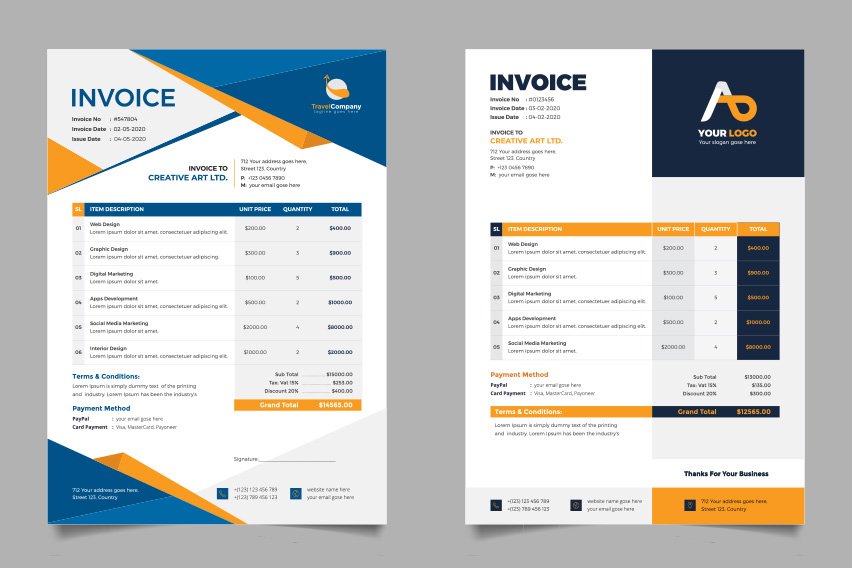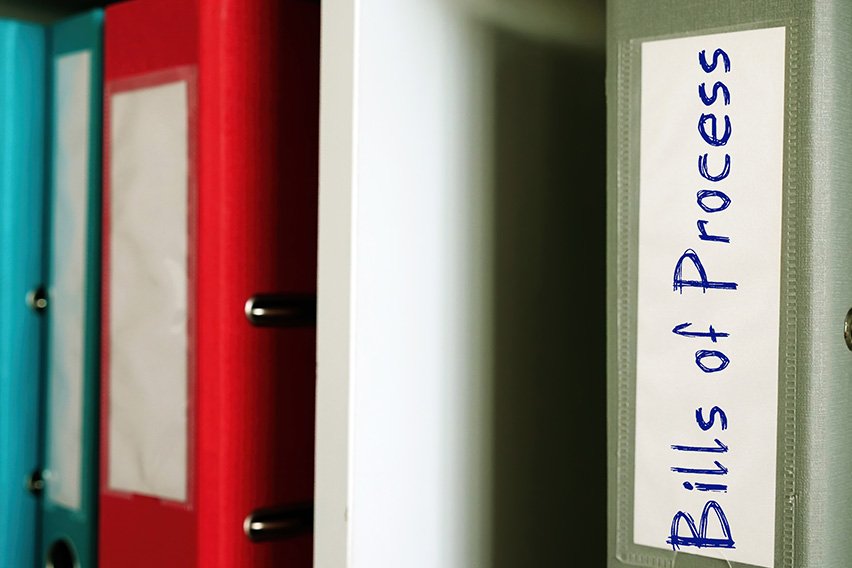Is an Invoice a Contract? Create Freelance Contracts to Protect Your Business

An invoice on its own is not a contract in a legal sense, because it does not prove an agreement between two parties. Instead, an invoice is created by a business and sent to a client to request payment for its services and is therefore a one-sided document. To create legally binding agreements with your clients, you’ll need contracts that outline all the terms of your projects and are signed by both you and your client.
Learn how an invoice differs from a contract with these topics:
What’s the Difference Between an Invoice and a Contract?
Do I Need a Freelance Contract?
Step-By-Step Guide to Creating Freelance Contracts
What’s the Difference Between an Invoice and a Contract?
The main difference between an invoice and a contract is that a contract involves an agreement between two parties, where one party sets out the terms of the agreement and the other party accepts the terms. An invoice, on the other hand, does not involve an agreement by two sides, but instead, it’s a document created by one party and sent to the other party to request payment for services rendered.
If you need assistance creating an invoice for your small business, this article can guide you through the process of making invoices.
Contracts are usually written documents that are signed by both agreeing parties, although you can also enter into a contract verbally. Electronic communications, including emails and text messages, can serve as contracts, as long as it’s clear in the communication that one party offers the terms for an agreement and the other party accepts those terms.

A contract provides protection and assurance for both parties entering into the agreement, because contracts are legally binding documents.
For a contract to be considered legally valid, two main conditions need to be met, according to the U.S. Small Business Administration:
- The parties involved in the contract must agree to an offer that is extended by one party and accepted by another party, and
- Something of value needs to be exchanged for something else of value; for example, a freelancer’s graphic design skills can be exchanged for cash payment from a client.
Do I Need a Freelance Contract?
Freelancers should have legally binding contracts in place with their clients to minimize misunderstandings and to protect themselves from losing time and money on projects. Here are some practical reasons why freelance workers should have contracts:
- To protect yourself if the client cancels the project unexpectedly. A freelance contract should include stipulations that you will receive partial payment for the work you do on a project in the event that the job is canceled by the client. This is known as a “kill fee.”
- To protect yourself if you need to cancel the project. Sometimes, complications arise that mean a freelancer can’t fulfill a job, whether it’s a death in the family or an illness that prevents you from doing the work. A contract can provide specific terms for canceling a project once it’s started, so a client can’t sue you for backing out.
- To ensure you get paid for your work. A contract will include legally enforceable payment details, including the amount owed for your work and deadlines for when a client must pay you.
- To protect you from unexpected client requests. A contract provides a framework for a project and details its scope, so if your client requests work that wasn’t covered in the contract, you won’t have to complete the additional work without a new contract.
- To provide your client with peace of mind. A contract will assure your client that they know exactly what they’re getting from you, when they’ll receive the work and how much they’ll need to pay you for your services. You’ll look professional and reliable.
Step-By-Step Guide to Creating Freelance Contracts
Here are some practical reasons why freelance workers should have contracts:
1. Include the Names and Contact Details of Involved Parties
Begin your freelance contract by listing the parties involved. Include your business’s name and address and include the names of any other people who will be working on the project. You’ll also include the name and contact details of your client.
2. Detailed Project Description and Scope
To ensure the scope of the project doesn’t balloon because of additional client requests, your contract should clearly detail the services you’ll provide and it should outline the full scope of the project.
3. List Project Deadlines
Include all the deadlines you’ll need to meet for the project. The job might include multiple milestones you’ll need to meet or there might just be one final deadline by which you’ll need to submit all your work.
4. Outline Terms for Revisions
To protect yourself from endless rounds of revisions requested by the client, include terms in your freelance contract that cover the number of revisions you’ll make before charging the client for any additional changes. It’s common for freelancers to include two or three rounds of revisions in their contracts.

5. Provide Pricing and Rates
List your rates for the project and how you’ll be billing the client, whether it’s based on an hourly rate or a flat fee for the entire project. If you charge by the hour, make sure you include a minimum and maximum work-hour clause to guarantee a certain level of payment for you and to protect your client from paying more than a certain agreed-upon amount for the job. For more guidance, check out our post on how to write an invoice for hours worked, which provides valuable insights to streamline your billing process.
6. List Payment Information
Include a payment schedule with clear deadlines to make sure you get paid on time. You can either agree to installment payments for a steady cash flow throughout the span of the project, or you can agree to an upfront deposit at the start of the contract, with the rest of the payment due when the job is completed. If you’ll charge late fees on past due invoices, include your late fee policy in the contract, as well.
7. Include Cancelation Terms
Make sure you write a kill fee into the contract, so that if your client cancels the project after you’ve started working on it, you’ll still receive some compensation for your work. A kill fee can either be based on the amount of work that’s completed at the time of cancelation, or you can include a flat kill fee, usually anywhere from 25 percent to 50 percent of the total project cost. You’ll also want to include terms that protect you in case you need to cancel the contract for some reason.
8. Provide Copyright Ownership Details
Outline who will own the copyright to the work you complete. For most freelance creatives, such as copywriters, the freelancer will own the copyright to the work until the final payment is received, at which point the copyright transfers to the client.
If you need further assistance creating legally binding freelance contracts for your business, the Freelancers Union offers free, easy-to-use freelance contract templates.
RELATED ARTICLES

 How to Make a Business Invoice And Tips for Faster Payment
How to Make a Business Invoice And Tips for Faster Payment How to Read an Invoice: The 5 Most Important Things to Look For
How to Read an Invoice: The 5 Most Important Things to Look For Can I Charge Interest on Late Invoice Payments? Invoicing Etiquette Explained
Can I Charge Interest on Late Invoice Payments? Invoicing Etiquette Explained How to Invoice as a Consultant: Tips for Consulting Businesses
How to Invoice as a Consultant: Tips for Consulting Businesses How to Process an Invoice: A Guide for Small Business Owners
How to Process an Invoice: A Guide for Small Business Owners What Is the Difference Between Purchase Order and Invoice?
What Is the Difference Between Purchase Order and Invoice?